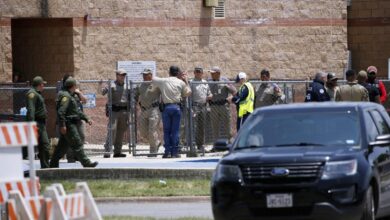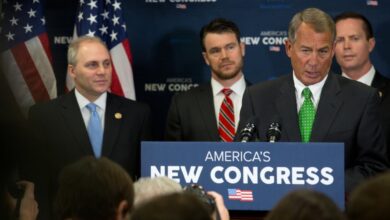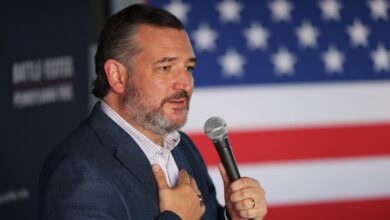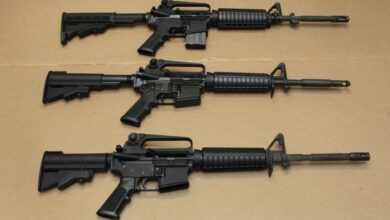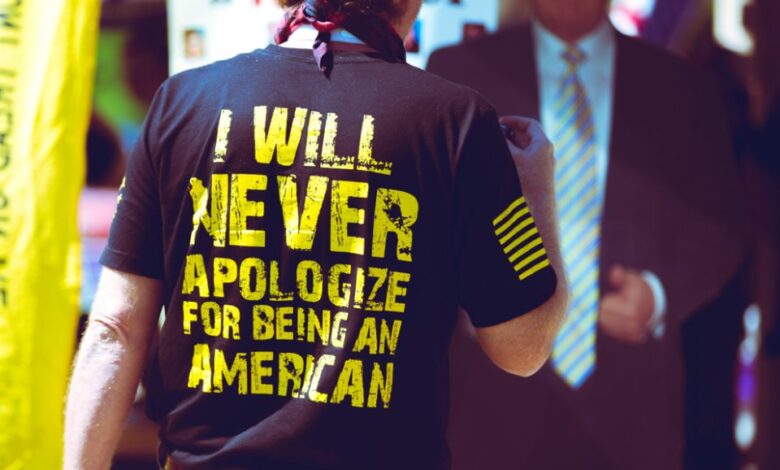
How Gun Ownership Became a Powerful Political Identity
How gun ownership became a powerful political identity is a story deeply woven into the fabric of American history. It’s a story of individual liberty, cultural identity, and the evolving political landscape. From the early days of the nation’s founding, firearms have held a significant place in American life, shaping not only individual choices but also national narratives.
This article delves into the complex history of gun ownership in America, examining how it transformed from a practical necessity to a symbol of political power. We’ll explore the factors that propelled this shift, from the rise of gun rights organizations to the impact of mass shootings.
Historical Evolution of Gun Ownership and Politics
The relationship between gun ownership and politics in the United States is deeply rooted in the nation’s history, evolving alongside its social, cultural, and legal landscape. From the early days of settlement to the modern era, gun ownership has played a significant role in shaping American identity, influencing legislation, and sparking heated debates.
Early Settlements and the Right to Bear Arms
The concept of gun ownership as a fundamental right is deeply intertwined with the origins of the United States. During the colonial period, settlers relied heavily on firearms for self-defense, hunting, and protection against Native American tribes. This dependence on firearms fostered a strong cultural association between gun ownership and individual liberty, as well as the ability to participate in the defense of one’s community.
This belief was further solidified by the American Revolution, where citizen militias armed with privately owned firearms played a pivotal role in securing independence from British rule.
The Second Amendment and the Formation of the United States
The Second Amendment of the United States Constitution, ratified in 1791, explicitly addresses the right to bear arms, stating: “A well regulated Militia, being necessary to the security of a free State, the right of the people to keep and bear Arms, shall not be infringed.” This amendment has served as the cornerstone of legal arguments surrounding gun ownership in the United States, with its interpretation and application becoming a subject of ongoing debate and legal challenges.
The Rise of Gun Control Movements
The late 19th and early 20th centuries witnessed a surge in gun violence, particularly in urban areas, leading to the emergence of gun control movements. These movements, fueled by concerns about crime and public safety, advocated for stricter regulations on firearms ownership and sales.
The rise of gun ownership as a political identity is a fascinating phenomenon. It’s a powerful symbol of individual freedom and self-reliance, and for some, it’s a way to express their political beliefs. But it’s also a complex issue with deep roots in American history.
Just like it’s important to retain veteran employees, as Adam Grant suggests in his article want to hang on to veteran employees nows the time for retention raises says adam grant , it’s also important to understand the various factors that have shaped the debate around gun ownership and its role in American politics.
Notable events during this period include the passage of the National Firearms Act of 1934, which imposed taxes and regulations on certain types of firearms, and the Gun Control Act of 1968, which prohibited the sale of firearms to felons and individuals deemed mentally unstable.
The Civil Rights Movement and Gun Ownership
The Civil Rights Movement of the 1950s and 1960s brought renewed attention to the issue of gun ownership and its connection to racial equality. The movement’s emphasis on self-defense and the protection of individual rights resonated with many African Americans, who saw gun ownership as a means of empowerment and protection against discrimination and violence.
It’s fascinating how gun ownership has become so deeply intertwined with political identity in the US. It’s a complex issue, with arguments on both sides, but the recent rise in political polarization has only intensified the debate. While politicians grapple with this issue, President Biden is taking a different approach, visiting the Port of Los Angeles to highlight the global nature of inflation and its impact on everyday Americans.
This shift in focus, from domestic political battles to international economic challenges, could be a sign of a changing political landscape, where issues like gun ownership might need to be addressed in a broader context.
This period witnessed a rise in the number of African Americans seeking to obtain firearms, and the debate surrounding gun control became increasingly intertwined with issues of race and equality.
The Rise of the National Rifle Association (NRA)
The National Rifle Association (NRA), founded in 1871, emerged as a powerful force in the gun rights movement during the latter half of the 20th century. The NRA’s focus on promoting gun ownership as a fundamental right, coupled with its aggressive lobbying efforts, played a significant role in shaping the political landscape surrounding gun control.
The organization’s membership grew significantly during this period, fueled by a growing sense of fear and insecurity among many Americans.
Landmark Court Cases and Legislative Changes
The late 20th and early 21st centuries saw a series of landmark court cases and legislative changes that further shaped the political landscape surrounding gun ownership. Notable cases include:
- District of Columbia v. Heller (2008): This Supreme Court case ruled that the Second Amendment protects an individual’s right to possess a firearm unconnected with service in a militia, for traditionally lawful purposes, such as self-defense within the home.
- McDonald v. City of Chicago (2010): This Supreme Court case extended the Second Amendment’s right to keep and bear arms to the states, striking down Chicago’s handgun ban.
The Gun Control Debate Today
The debate surrounding gun ownership in the United States remains highly polarized, with strong opinions on both sides of the issue. Proponents of gun control argue that stricter regulations are necessary to reduce gun violence and protect public safety. They advocate for measures such as universal background checks, bans on assault weapons and high-capacity magazines, and limitations on the purchase of firearms by individuals with mental health issues.
Conversely, gun rights advocates maintain that the Second Amendment guarantees an individual’s right to own firearms for self-defense, sport, and hunting. They argue that stricter gun control measures infringe on individual liberty and do little to prevent gun violence.
The Rise of Gun Ownership as a Political Identity
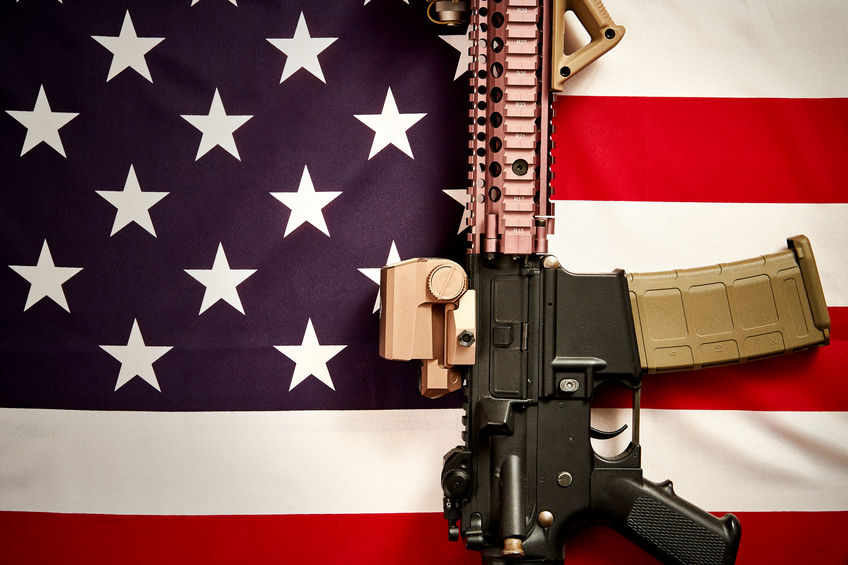
The notion of gun ownership as a deeply ingrained political identity is a relatively recent phenomenon in the United States. While gun ownership has always been a part of American culture, its transformation into a potent political symbol is a product of complex social, economic, and cultural forces that have shaped the nation’s political landscape in the latter half of the 20th century.
Factors Contributing to the Rise of Gun Ownership as a Political Identity
The evolution of gun ownership into a defining political identity can be attributed to a confluence of factors that have shaped the political discourse and social dynamics in the United States.
- The Second Amendment and its Interpretation:The Second Amendment of the U.S. Constitution, which guarantees the right to bear arms, has been a cornerstone of the debate on gun ownership. Interpretations of the Second Amendment have varied significantly over time, with some arguing for a broad interpretation that allows for individual gun ownership and others advocating for a more limited interpretation that emphasizes the right of states to regulate firearms.
The rise of the “individual right” interpretation of the Second Amendment, particularly in the latter half of the 20th century, has played a crucial role in shaping the political landscape surrounding gun ownership.
- The Civil Rights Movement and the Rise of Conservative Politics:The Civil Rights Movement of the 1960s, which challenged racial segregation and discrimination, led to a backlash among some white Americans, particularly in the South. This backlash contributed to the rise of conservative politics and a focus on individual liberty and states’ rights.
Gun ownership became a symbol of resistance against perceived government overreach and a way to assert individual autonomy, particularly among white Southerners who saw their traditional way of life threatened by the social and political changes of the era.
- The Vietnam War and the Anti-War Movement:The Vietnam War, a highly divisive conflict, further fueled anxieties about government power and control. The anti-war movement, which drew support from various segments of society, challenged the government’s authority and raised concerns about the potential for government abuse. Gun ownership, seen as a means of self-defense against a potentially oppressive government, gained traction among those who felt disenfranchised and suspicious of the government’s motives.
- The Rise of the “Culture Wars”:The “culture wars” of the 1980s and 1990s, characterized by clashes over social and moral issues, further intensified the debate on gun ownership. These clashes, often centered around issues such as abortion, gay rights, and religious freedom, contributed to a sense of cultural polarization and heightened anxieties about societal changes.
Gun ownership, seen as a means of protecting individual rights and values, became a symbol of resistance against perceived threats to traditional values and social order.
- The Influence of the National Rifle Association (NRA):The NRA, a powerful lobbying group that advocates for gun rights, has played a significant role in shaping the political landscape surrounding gun ownership. The NRA has effectively mobilized its membership, used its financial resources to influence elections, and promoted a narrative that emphasizes the importance of gun ownership for self-defense and individual liberty.
The NRA’s influence has helped to solidify gun ownership as a core value among its supporters and has contributed to the perception of gun ownership as a fundamental right.
Political Perspectives on Gun Ownership
The issue of gun ownership has become a deeply divisive one in American politics, with starkly contrasting perspectives held by different political groups.
- Conservative Perspective:Conservatives generally support a broad interpretation of the Second Amendment and advocate for minimal restrictions on gun ownership. They often argue that gun ownership is a fundamental right that protects individual liberty, promotes self-reliance, and serves as a deterrent against crime.
They believe that gun control measures are ineffective and infringe on the rights of law-abiding citizens.
- Liberal Perspective:Liberals generally support stricter gun control measures, arguing that such measures are necessary to reduce gun violence and protect public safety. They often cite the high rates of gun violence in the United States compared to other developed countries as evidence of the need for greater regulation.
They believe that the Second Amendment does not guarantee an unlimited right to own any type of firearm and that reasonable restrictions are necessary to balance individual rights with public safety.
Gun Ownership as a Symbol of Freedom, Self-Reliance, and Resistance
For many Americans, particularly those who identify with conservative or libertarian ideologies, gun ownership has become a symbol of individual freedom, self-reliance, and resistance against government overreach.
- Individual Freedom:Gun ownership is often seen as a fundamental right that embodies the freedom of individuals to protect themselves, their families, and their property. It is seen as a way to assert autonomy and resist any perceived infringement on personal liberty.
- Self-Reliance:Gun ownership is also associated with self-reliance and the ability to take care of oneself without relying on government assistance. It is seen as a way to be prepared for any unforeseen event, whether it be a natural disaster, a criminal act, or a perceived threat from the government.
- Resistance:Gun ownership has also become a symbol of resistance against perceived threats to individual liberty, including government overreach, crime, and social change. It is seen as a way to defend oneself against tyranny and maintain a sense of control in a world that can often feel chaotic and unpredictable.
The Impact of Gun Ownership on Political Discourse
The issue of gun ownership has become a central topic in political campaigns and debates, influencing voting patterns and political alliances. This intense focus reflects the deeply ingrained cultural and political significance of gun ownership in the United States.
The Centrality of Gun Ownership in Political Campaigns
The issue of gun ownership has become a focal point in political campaigns, with candidates often making their stance on gun control a central element of their platforms. This prominence is driven by the strong feelings that Americans have about the Second Amendment and the role of guns in society.
“The Second Amendment is a fundamental right, and I will always stand up for the rights of law-abiding citizens to own guns.”
A typical statement by a pro-gun politician.
The issue of gun control is often used to mobilize voters, particularly in states with strong gun ownership traditions. Candidates often make promises to defend gun rights or to enact stricter gun control measures, depending on their stance.
The Rhetoric of Gun Control Debate
The rhetoric surrounding gun control is often highly charged and polarized. Pro-gun advocates often emphasize the importance of the Second Amendment, the right to self-defense, and the role of guns in deterring crime. They frequently frame gun control as an infringement on individual liberty and an attempt to disarm law-abiding citizens.
“Gun control is about taking away our freedom, our right to protect ourselves, and our right to defend our families.”
A common argument from pro-gun advocates.
Gun control advocates, on the other hand, focus on the issue of gun violence, particularly mass shootings, and argue that stricter gun control measures are necessary to reduce the number of gun-related deaths. They often emphasize the need for background checks, bans on assault weapons, and restrictions on high-capacity magazines.
“Gun violence is a public health crisis, and we need to take action to protect our children and our communities.”
A typical statement by a gun control advocate.
Influence on Voting Patterns and Political Alliances
The issue of gun ownership has a significant impact on voting patterns and political alliances. Voters who strongly support gun rights are more likely to vote for candidates who share their views, while those who prioritize gun control are more likely to support candidates who advocate for stricter gun control measures.The National Rifle Association (NRA) is a powerful lobbying group that advocates for gun rights and has a significant influence on elections.
The NRA’s endorsement can be a major asset for candidates, particularly in states with a strong gun ownership culture.The issue of gun ownership has also contributed to the polarization of American politics. It has become a defining issue for many voters, particularly in rural areas and states with strong gun ownership traditions.
This polarization has made it difficult for politicians to find common ground on the issue, leading to gridlock and inaction.
The Influence of Gun Rights Organizations

Gun rights organizations have played a pivotal role in shaping the political landscape surrounding gun ownership in the United States. These organizations have effectively mobilized public opinion, advocated for legislative changes, and contributed to the perception of gun ownership as a fundamental right.
Major Gun Rights Organizations
These organizations have been instrumental in promoting gun rights and influencing public policy.
- National Rifle Association (NRA):Founded in 1871, the NRA initially focused on promoting marksmanship and safe gun handling. However, it evolved into a powerful lobbying group advocating for gun rights, particularly after the passage of the Gun Control Act of 1968. The NRA has been a prominent voice in opposing gun control measures, arguing that such laws infringe on the Second Amendment rights of law-abiding citizens.
The NRA has a large membership base and employs various strategies, including lobbying, public relations, and political endorsements, to advance its agenda. It has been highly influential in shaping the political discourse on gun ownership, often framing the debate in terms of individual freedom and the right to self-defense.
- Gun Owners of America (GOA):Established in 1975, the GOA is a more conservative and militant organization compared to the NRA. It advocates for a strict interpretation of the Second Amendment, opposing any form of gun control, including background checks and restrictions on high-capacity magazines.
The GOA is known for its aggressive tactics, often engaging in legal challenges and mobilizing its members to contact lawmakers. It has been particularly vocal in opposing federal gun control measures, arguing that they are ineffective and infringe on the rights of law-abiding citizens.
- Second Amendment Foundation (SAF):Founded in 1982, the SAF is a non-profit organization dedicated to defending the Second Amendment right to keep and bear arms. It focuses on legal advocacy, litigation, and education, aiming to protect gun ownership rights from infringement. The SAF has been involved in numerous legal challenges against gun control laws, arguing that they violate the Constitution.
It also engages in public education campaigns to promote the importance of the Second Amendment and counter arguments in favor of gun control.
Shaping the Political Landscape
Gun rights organizations have significantly shaped the political landscape surrounding gun ownership through various means.
- Lobbying:These organizations actively lobby lawmakers at both the state and federal levels, advocating for legislation that protects gun rights and opposes gun control measures. They employ professional lobbyists who meet with legislators, draft bills, and engage in negotiations to influence policy decisions.
It’s fascinating how gun ownership has become a powerful political identity in the US, often tied to concepts of freedom and self-reliance. The recent decline in the value of the Japanese yen, as explored in this insightful article analysis why japans yen is the weakest in 20 years and what that means , reminds us that global economic trends can have far-reaching implications, even shaping political discourse in seemingly unrelated areas like gun control.
- Political Endorsements:Gun rights organizations endorse candidates for office based on their stance on gun control. They often provide financial support to candidates who align with their positions, contributing to campaign funds and mobilizing their members to vote for pro-gun candidates.
- Public Relations:These organizations engage in public relations campaigns to shape public opinion on gun ownership. They use various media platforms, including television, radio, and social media, to disseminate their message and counter arguments in favor of gun control. They also organize rallies and protests to demonstrate public support for gun rights.
Mobilizing Public Opinion
Gun rights organizations have been successful in mobilizing public opinion on gun ownership, using various tactics to influence public discourse.
- Grassroots Activism:These organizations encourage their members to contact lawmakers, participate in rallies, and engage in grassroots activism to advocate for gun rights. They often provide tools and resources to facilitate such activities, empowering their members to influence policy decisions.
- Framing the Debate:Gun rights organizations have effectively framed the debate on gun ownership, emphasizing individual freedom, self-defense, and the threat of government overreach. They often portray gun control measures as ineffective and infringements on the rights of law-abiding citizens.
- Public Education Campaigns:These organizations conduct public education campaigns to promote the importance of gun ownership, highlighting its role in self-defense, deterring crime, and preserving liberty. They often use emotional appeals and anecdotal evidence to sway public opinion in their favor.
Advocating for Legislative Changes, How gun ownership became a powerful political identity
Gun rights organizations have been actively involved in advocating for legislative changes that protect gun ownership.
- Opposing Gun Control Measures:These organizations have consistently opposed gun control measures, arguing that they are ineffective in reducing gun violence and infringe on the Second Amendment rights of law-abiding citizens. They have been instrumental in blocking or delaying the passage of gun control legislation at both the state and federal levels.
- Promoting Gun Rights Legislation:Gun rights organizations have also advocated for legislation that expands gun rights, such as laws allowing concealed carry permits, prohibiting the registration of firearms, and preventing restrictions on the sale of firearms. They have been successful in enacting such legislation in various states.
- Legal Challenges:These organizations have frequently challenged gun control laws in court, arguing that they violate the Constitution. They have been successful in overturning or limiting the scope of some gun control measures, contributing to a legal landscape that favors gun ownership.
The Impact of Mass Shootings and Gun Violence
The rise of mass shootings and gun violence in the United States has profoundly impacted the public perception of gun ownership and sparked intense political debate. The tragic events have led to a complex interplay of public fear, grief, and calls for action, shaping the political landscape and influencing policy discussions.
The Public’s Perception of Gun Ownership
The public’s perception of gun ownership has become increasingly polarized in the wake of mass shootings. While some individuals view gun ownership as a fundamental right and a means of self-defense, others see it as a significant risk to public safety.
The fear and anxiety associated with gun violence have contributed to a growing sense of insecurity and vulnerability, particularly in communities directly affected by these tragedies.
Political Responses to Gun Violence
The political response to gun violence has been characterized by a stark divide between proponents of stricter gun control measures and those who advocate for preserving Second Amendment rights. Following high-profile mass shootings, there have been numerous legislative proposals aimed at addressing gun violence, including background checks, bans on assault weapons, and restrictions on high-capacity magazines.
These proposals have often faced significant opposition from gun rights groups and lawmakers who argue that such measures infringe upon the constitutional rights of law-abiding citizens.
The Influence of Gun Violence on Political Discourse
Gun violence has become a central issue in American political discourse, shaping electoral campaigns, party platforms, and public policy debates. The issue has fueled intense partisan divisions, with Democrats generally supporting stricter gun control measures and Republicans often opposing such regulations.
The prominence of gun violence in the political arena has led to a heightened focus on gun ownership and its implications for public safety, as well as the role of government in regulating firearms.
“The issue of gun violence is a complex one, and there is no easy solution. However, it is clear that we need to find a way to reduce the number of mass shootings and other gun-related deaths in this country.”
Former President Barack Obama
The Future of Gun Ownership and Politics: How Gun Ownership Became A Powerful Political Identity
The future of gun ownership and politics in the United States is a complex and multifaceted issue, shaped by demographic shifts, evolving cultural attitudes, and the ongoing debate over gun control. While the political landscape remains polarized, certain trends and factors suggest potential shifts in the relationship between gun ownership and political identity.
Potential Future Trends in Gun Ownership
The future of gun ownership in the United States will likely be influenced by a combination of demographic changes, economic factors, and evolving cultural attitudes.
- Demographic Shifts:As the US population becomes increasingly diverse, the composition of gun owners may also shift. For example, the growing Hispanic population, which generally has lower rates of gun ownership than the white population, could influence future trends. However, it is important to note that gun ownership within the Hispanic community is not uniform, and there are significant variations across different sub-groups.
- Economic Factors:Economic conditions can influence gun ownership rates. During times of economic uncertainty, people may be more likely to purchase guns for self-protection. However, the rising cost of firearms and ammunition could also act as a deterrent for some potential gun owners.
- Cultural Attitudes:Cultural attitudes towards gun ownership are evolving. While some Americans remain strongly pro-gun, others are increasingly concerned about gun violence and are advocating for stricter gun control measures. This shift in public opinion could influence the future of gun ownership in the US.
Final Thoughts
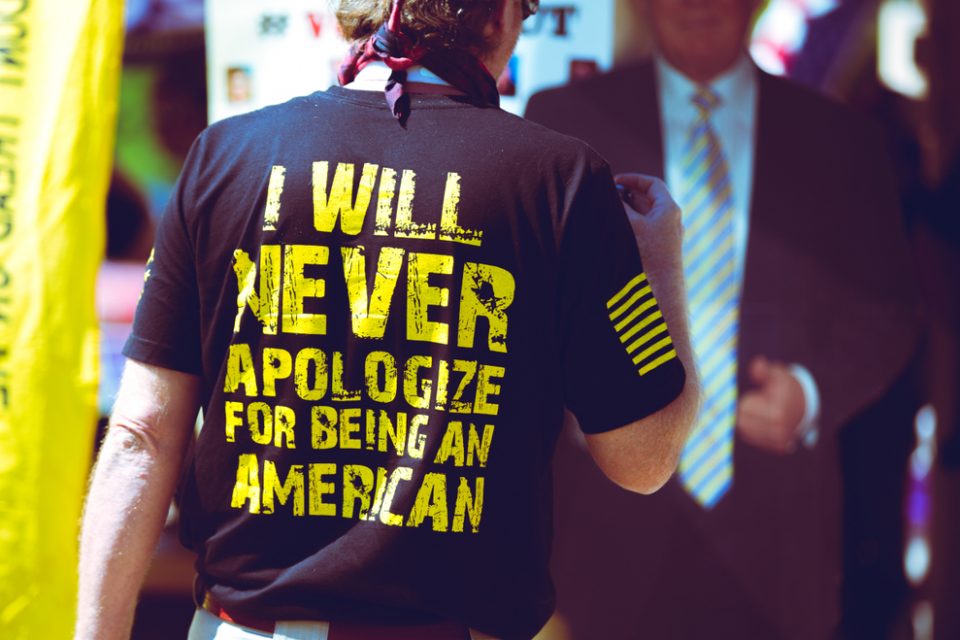
The relationship between gun ownership and politics is a dynamic and evolving one. It’s an issue that stirs strong emotions and divides opinions. As we move forward, understanding the historical context, the social and cultural influences, and the political forces at play is crucial for navigating this complex issue.
The future of gun ownership in America will depend on our ability to engage in respectful dialogue, consider diverse perspectives, and find solutions that address the concerns of all Americans.

